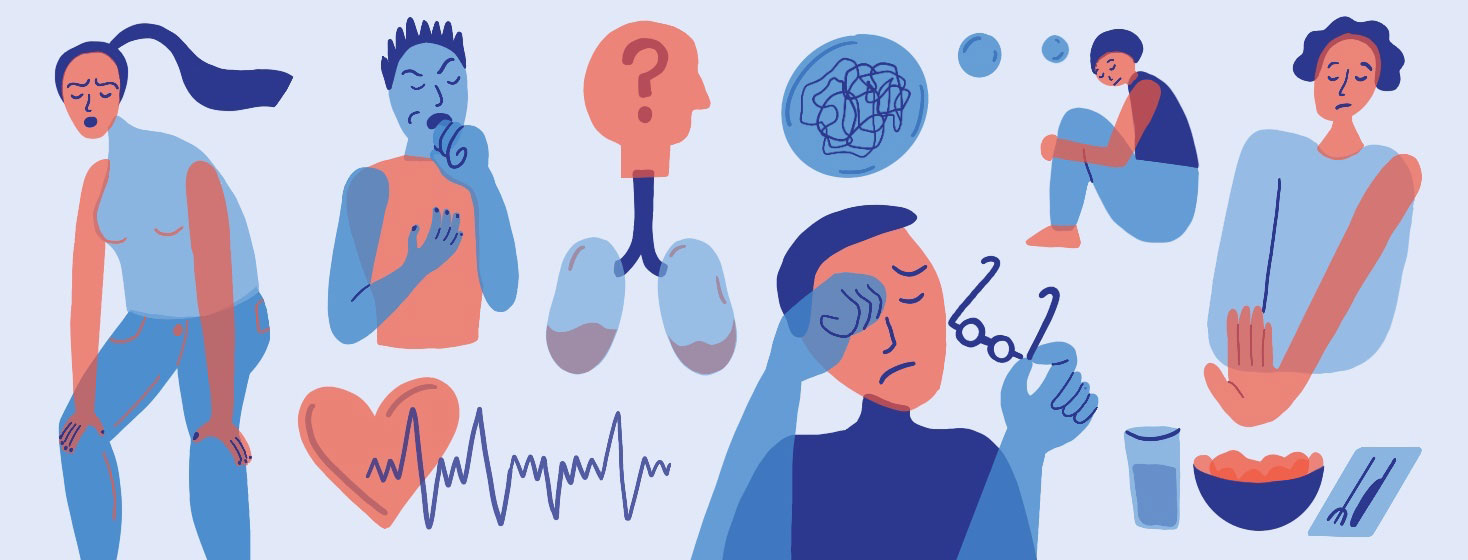Most Commonly Experienced Heart Failure Symptoms
Life with heart failure can look different from person to person. Severity, type of heart failure, and treatment plans can all vary. Heart failure also comes with a wide range of symptoms.
We conducted our 2020 Heart Failure In America survey to better understand the symptoms that impact those living with the condition. More than 600 men and women with heart failure completed the survey and shared their experiences.
While each person’s heart failure journey is unique, 92 percent of survey respondents shared that they had experienced at least one symptom related to their heart failure within the last month.
Overwhelmingly common symptoms
The majority of the men and women who completed the survey had two symptoms in common: shortness of breath and fatigue.
Shortness of breath during daily activities was experienced within the past month by 64 percent of respondents. About 28 percent of respondents also shared that they experienced shortness of breath while at rest.
Roughly 62 percent reported increased fatigue, or a feeling of weariness or weakness despite getting ample rest. Not surprisingly, 50 percent also said that they had trouble sleeping.
A range of physical heart failure symptoms
The far-reaching physical symptoms of heart failure often limit daily physical activities and impact overall well-being.
More than 40 percent of respondents reported that they had difficulty exercising, while 38 percent had experienced an irregular heartbeat (or pulse) with their condition.
Swelling was another physical symptom experienced by many of the survey respondents. About 37 percent said they noticed increased swelling in their lower limbs (edema), while another 26 percent experienced swelling of the abdomen.
A frequent dry, hacking cough was also common, with 27 percent of respondents experiencing this symptom.
The mental and emotional symptoms of heart failure
While heart failure brings a host of physical symptoms, the diagnosis also impacts mental and emotional health. More than 86 percent of survey respondents said they had experienced mental and emotional symptoms stemming from the condition within the past month. 35 percent experienced anxiety, 32 percent experienced depression/mood changes, and 19 percent experienced confusion/impaired thinking.
Less common heart failure symptoms
Some of the less common symptoms stemming from heart failure included gastrointestinal issues and fluid in the lungs. Although these symptoms were reported less frequently, they still affected nearly 20 percent of survey respondents.
Nausea was reported in 19 percent of people, while 17 percent shared that they had experienced a loss of appetite. In contrast, rapid weight gain was reported by more than 15 percent of respondents. Although not specified, some rapid weight gain may be related to fluid retention.
Pulmonary edema, or fluid in the lungs, was reported by 16 percent of participants. Pulmonary edema can make it difficult to breathe and can cause additional coughing or respiratory symptoms.
Another 12 percent shared that they had experienced pain in the abdomen within the past month.
Checking in with a healthcare provider
Since new symptoms can arise regularly with heart failure, checking in with a healthcare provider when experiencing new or worsening symptoms is always a good idea.
The Heart Failure In America 2020 survey was conducted online from October 2019 through April of 2020. 642 people completed the survey.

Join the conversation